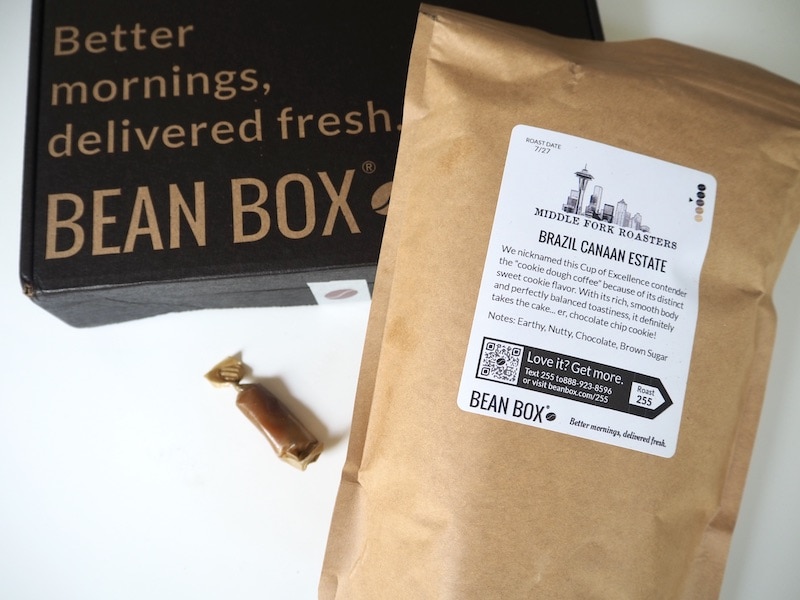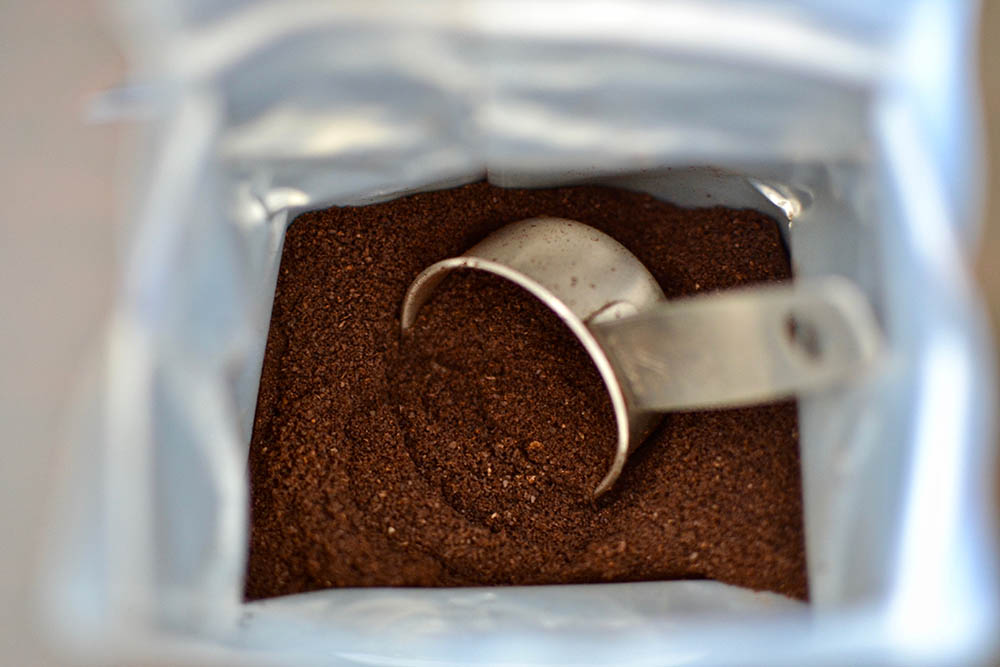
One of the great things about coffee purchased at shops is that it’s usually freshly ground, which gives it an excellent flavor. But if you love the delicious flavor of fresh grounds, you understand the benefits of keeping your coffee fresh at home.
Unless you are a serious coffee drinker, you may not want to buy a grinder and go through the extra step of grinding your own coffee beans every morning. The good news is that you can simply store your coffee effectively so that you can still get that awesome fresh taste even with pre-ground coffee–the next best thing to grinding the coffee beans yourself.
But what are the best ways to store ground coffee? In this article, we’re going to cover some tips and tricks used to ensure that your ground coffee lasts a long time.
Top 11 Tips to Store Ground Coffee
1. Always Note The Expiration Date
Before storing your coffee grounds, be sure to check the expiration and roast date on the packaging. This will help you develop a timeline for how long you should store the coffee.
Note that every package of coffee grounds will have a point of no return (aka “expiration date”), so you’ll want to grind and use all your grounds within a certain time frame. This is usually about four to five months from the expiration date.
2. Freeze The Coffee Grounds
And of course, you can freeze the coffee grounds. Unlike with the refrigerator, you won’t have to deal with mold issues if you place the coffee grounds in the freezer. When doing so, be sure to place them in vacuum-sealed bags and mark the date that you freeze them.
The coffee grounds can keep their freshness for anywhere from 18 months to 2 years in vacuum-sealed containers, and about 5 to 6 months in containers that aren’t vacuum sealed. It’s best to place the coffee grounds in a freezer-safe Ziploc bag that’s opaque.
Also, be sure to tightly seal the bag and let out as much air as possible. This will help to preserve the flavor of the coffee beans and prevent them from taking on the flavors of other food items in your freezer. You can even double-bag the grounds to be on the safe side–doing so will also help to prevent freezer burn. Note that the freezing process may reduce the flavor and aroma of the beans slightly, especially if you store them for several months.
3. Don’t Place Them In The Fridge
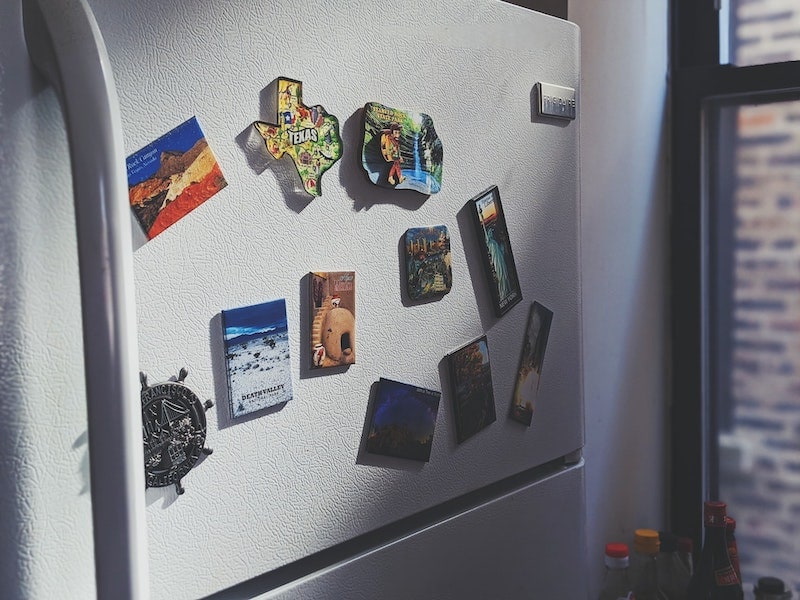
Yes, the refrigerator is often our go-to spot for keeping all foods and beverages fresh and tasty. However, this doesn’t necessarily work for coffee grounds. Remember, refrigerators contain moisture, and one of the best things that you can do for your coffee grounds is to keep them dry. The moisture and refrigerators can cause the grounds to develop moles, which will leave you to do with stale, foul-tasting coffee.
4. Store Them In The Pantry
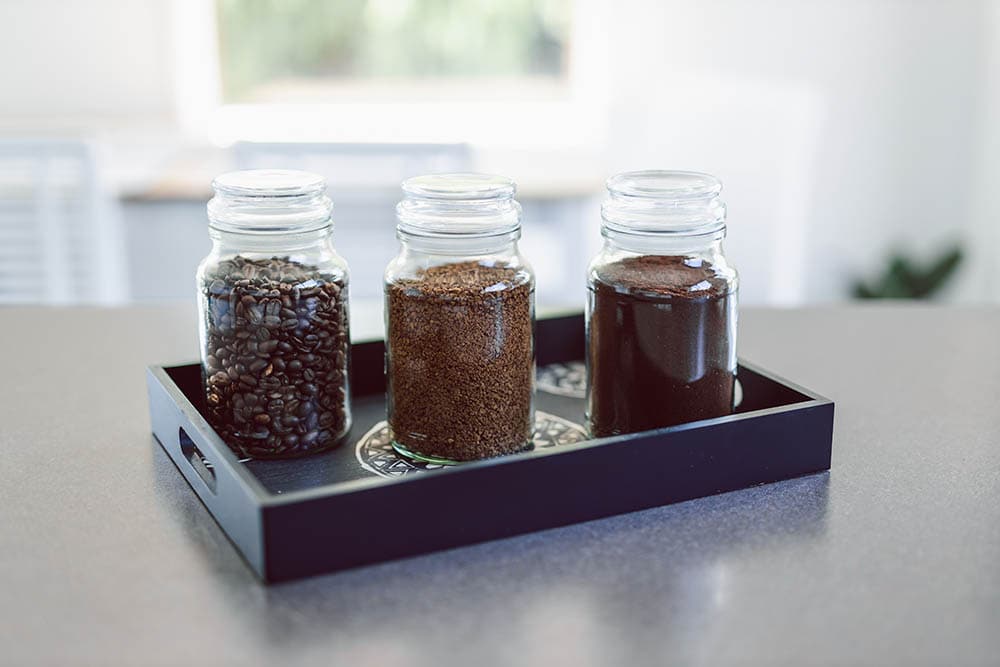
If you consume coffee regularly and know that you’re going to go through the grounds within a period of weeks, then you can simply place them in the pantry. If you have a vacuum-sealed container or the original packing if it has a tight seal, that’s perfect.
If not, be sure to place them in a canister, bag, or even a mason jar, and make sure that the seal is as tight as possible. If you store the grounds in a plastic container, it may be a good idea to enclose them in tinted glass or metal containers as well. Doing so will help prevent coffee-loving pests, such as spiders and ants, from finding and hijacking your grounds.
5. Consume The Grounds Quickly
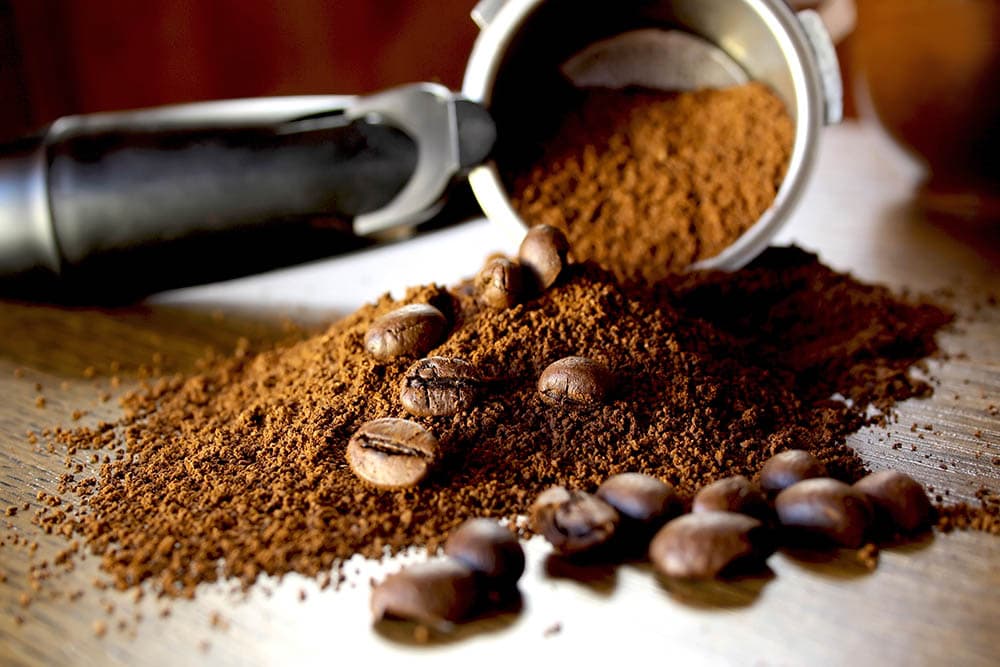
If you plan to store your grounds in the pantry or kitchen, it’s best to use them within about 3 to 4 weeks. Even if you have a tightly- sealed storage container, the grounds can go bad eventually. A month gives you time to get the most freshness out of the grounds, and if you can consume them within a week or two even better.
That being said, it’s best to know how much coffee you go through in a week before buying it in large batches. This will keep you from having to toss out coffee that’s gone unused.
6. Keep Them In A Dry, Cool Place
Even if you don’t have a pantry, you can simply store your dry coffee grounds in a container somewhere in the kitchen. So long as the kitchen has average humidity and has a temperature of no more than 85 degrees Fahrenheit, you should be good to go. Extended periods of time in high temperatures and excessive humidity can spell disaster for your ground beans. Make sure that the humidity in the storage location is no more than 55% on average. You can also get a hygrometer just to be on the safe side.
7. Make Sure To Only Use Non-Reactive Containers
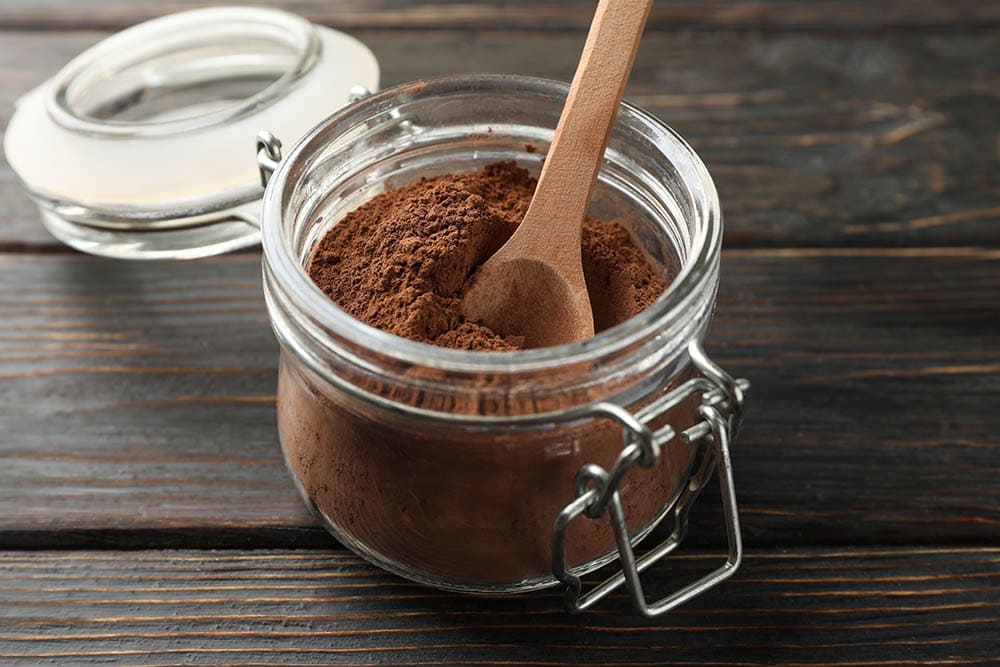
Oftentimes, consumers will keep their ground coffee beans in their original packaging. And other times, they may want to place the grounds in their own containers. If you do store your grounds in a new container, come and be sure that it’s made of nonreactive material.
Non-reactive materials are those made or coated with materials that won’t react with acids. The best options include glass, stainless steel, tin, and ceramic. Can you store ground coffee in a mason jar? Yes, you absolutely can. Mason jars are airtight and can help keep your coffee fresh.
8. Only Keep Small Batches
If you plan to freeze or dry store your grounds, only do so in small batches. Note that constantly opening and reclosing the package or container (especially large ones) will cause the grounds to be exposed to more air.
As a result, the beans will lose flavor and intensity faster than they normally would if the container was only opened sparingly. So even if you have a large batch, try to break it down into smaller batches to prevent over-exposure to oxygen.
9. Use Oxygen-Absorbing Packets
And of course, you can always add oxygen-absorbing packets to your coffee grounds. These packets contain iron, which grabs the oxygen molecules in the bag and virtually removes them. This, in turn, keeps your ground coffee fresh and extends its shelf life.
These packets are fairly inexpensive, and you can find them on Amazon or at local markets for about $12 for a pack of 20 or more. It’s also worth noting that you can purchase opaque mylar bags that come with oxygen absorbers. These are perfect for sealing ground coffee and other perishable dry foods–they’re also available on Amazon.
10. Buy Nitrogen-Flushed Coffee Grounds
You can also buy nitrogen-flushed grounds. Nitrogen is a preservation method that involves flushing and removing oxygen from the coffee bean packaging. Many high-quality coffee brands use this method to help their blends maintain maximum freshness before they’re used. If coffee grounds have been nitrogen-flushed, it will usually state so on their packaging.
11. Never Store Them Near Windows
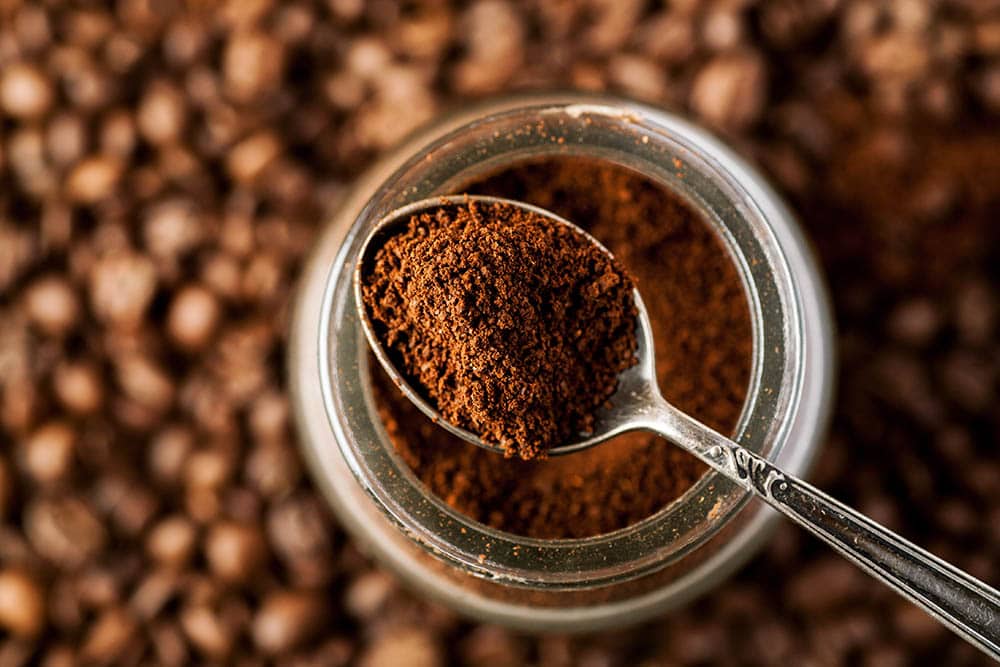
Light is just as bad for ground coffee beans as is air and heat. It can ruin them in a matter of weeks no matter how fresh they are. Be sure to never store your ground coffee beans near a window without a full opaque shade or curtain. You also want to know that storing coffee near windows can expose it to excessive temperatures during high noon or late evening.
Wrapping Things Up
Many avid coffee drinkers love ground coffee because it’s easy to store and more pliable than coffee beans. If you buy pre-ground coffee, it’s best to store it properly to prevent it from losing its flavor or becoming rancid. When storing ground coffee, be sure to keep it in a tightly sealed container that is opaque and stored in a dry, cool place.
Be sure to note the expiration date on the coffee grounds and the date on which you store them. Never store coffee grounds in your refrigerator, and if you store them in the freezer, be sure to seal the grounds in a freezer-safe container.
Featured Image Credit: Redrock Photography, Shutterstock
Table of Contents
- Top 11 Tips to Store Ground Coffee
- 1. Always Note The Expiration Date
- 2. Freeze The Coffee Grounds
- 3. Don’t Place Them In The Fridge
- 4. Store Them In The Pantry
- 5. Consume The Grounds Quickly
- 6. Keep Them In A Dry, Cool Place
- 7. Make Sure To Only Use Non-Reactive Containers
- 8. Only Keep Small Batches
- 9. Use Oxygen-Absorbing Packets
- 10. Buy Nitrogen-Flushed Coffee Grounds
- 11. Never Store Them Near Windows
- Wrapping Things Up


